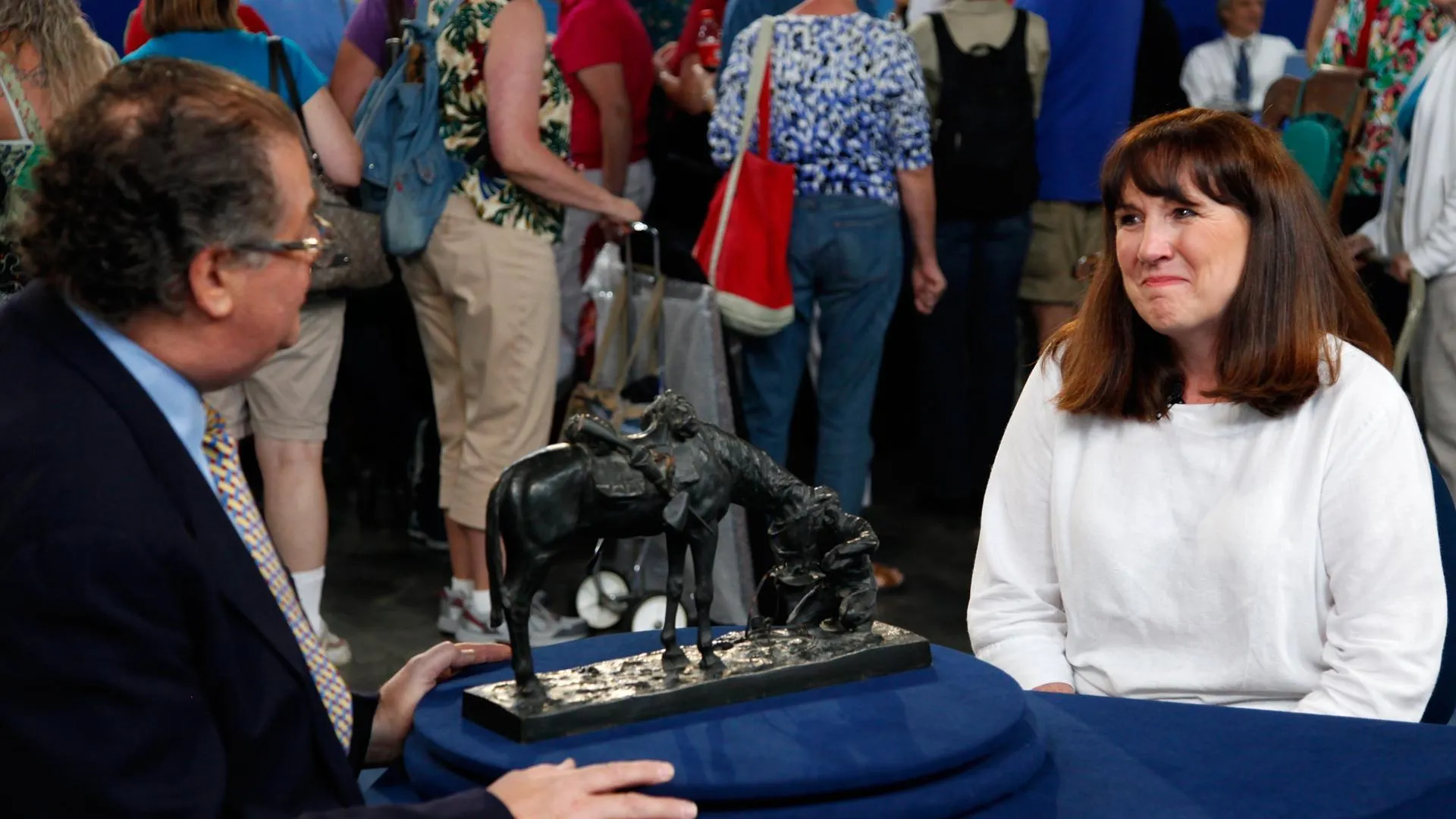GUEST: This was my father's war log when he was a prisoner during World War II. The Red Cross had come and distributed these wartime logs. Well, when the Red Cross left, most of them were confiscated by the Germans. My father, however, was able to hold onto his because he had a job where he cleaned the latrines. And he built this shelter in the latrines and that's where he would keep it. Incidentally, he had a nickname of "Stinky."
APPRAISER: Stinky, okay.
GUEST: And at night he would bring the wartime log up to his camp and he would put entries in there. His buddies would write poems and draw pictures and tell stories. So it's pretty much 18 months of my father's captivity.
APPRAISER: So he was really able to hang onto it by putting it in a place that no one was going to search, right?
GUEST: Exactly.
APPRAISER: Really, the beginning of it starts with the POW form that was supplied by the Germans. And POW, of course, prisoner of war, and they really were treated like prisoners. And here we have a snapshot, or we might say mugshot, of your father with a number below his name, is how they would have serialed him and kept track of him while he was a prisoner. It gives a little bit of other details-- date of birth and next of kin. We also know he was flying in a B-17. And then the Red Cross, through the YMCA, would have distributed these wartime logs to prisoners. As much as this is a unique item, these were distributed. Though some were confiscated, many did survive. What's interesting about your father's log is it's very complete. It starts with your father, he must have probably later put his dog tag on the front after the war as kind of an introduction to the whole thing. Americans were issued with their own dog tags, but then, when they were captured, they were issued with the dog tags or ID tags from each stalag that they were kept in. Again, we can see that there's a B-17 drawing that may have been drawn by either your father or perhaps one of his friends. And it's going down. We also see a great little cartoon rendering of your father kind of making fun of the fact that he was the tail gunner, and there the whole tail's kind of disintegrating on him. So, here thinking happy to be alive and in a position to be able to make fun of what happened. And then we have a group of telegrams that detail a little bit of the story. And these were sent to your grandmother.
GUEST: Yes.
APPRAISER: Let's take a look at one that basically says, "Sgt. Frank Urban has been mentioned in an enemy broadcast as a prisoner in Germany." Did your grandmother or your father ever talk about this time period?
GUEST: My father never spoke about the war much. It was obviously a painful memory. But looking through there, you could see how horrific it was. The living conditions, the food, the varmints that walked around that they lived with in... it was hell of earth.
APPRAISER: They had it rough. And even though the Geneva Convention provided them certain standards, it was really a matter of what the Germans had to offer during war, because it was really wartime rations. But what I think is great, there's a lot of telegrams to your grandmother, but then, at the very end here, we see a telegram, on his way home, saying, "Be home at 7:00 with Ray. Have hot water ready. Love, Frankie." What a great end to the story, that he was able to make it back safe. And all he wanted was a bath.
GUEST: Yes, yes, yes.
APPRAISER: Obviously, to your family, it's priceless. Historically, to folks that collect militaria related to POWs, it's of interest because it is very complete. At auction, this is somewhere in the $1,500 to $2,000 range as a memento of the service that he provided to the country.
GUEST: Right, right.



